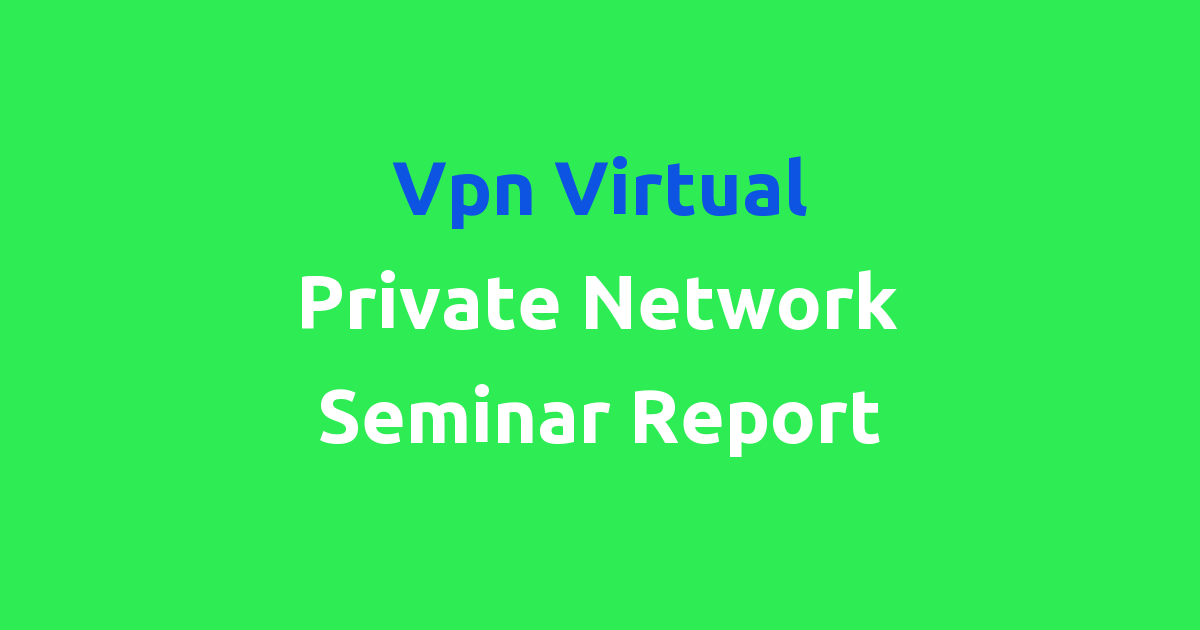Seminar report on virtual private network (VPN).
VPN Virtual Private Network Seminar Report
Introduction:
In today’s digital world, where internet connectivity plays a crucial role in our daily lives, the security and privacy of data have become a major concern. With the increasing number of cyber threats and data breaches, it has become imperative for individuals and organizations to safeguard their online communications and activities. This is where Virtual Private Networks (VPNs) come into play.
Problem Statement:
The traditional methods of securing internet connections, such as firewalls and encryption protocols, are no longer sufficient to protect against sophisticated cyber attacks. In addition, the growing trend of remote work and online collaboration has made it challenging to maintain the privacy and security of data transmitted over public networks. Therefore, there is a need for a more advanced and secure solution to address these issues.
Existing System:
The existing system relies on basic security measures such as firewalls and encryption protocols to protect data transmitted over the internet. While these methods provide some level of security, they are no match for the advanced cyber threats present today. Moreover, these traditional security measures do not offer the level of privacy and anonymity required for secure online communications.
Disadvantages:
Some of the disadvantages of the existing system include:
– Lack of advanced security features
– Vulnerability to cyber attacks
– Limited privacy and anonymity
– Inability to bypass geographical restrictions
Proposed System:
The proposed system involves the implementation of Virtual Private Networks (VPNs) to enhance the security and privacy of online communications. VPNs create a secure and encrypted connection between the user’s device and a remote server, thereby masking the user’s IP address and encrypting data transmitted over the internet. This ensures that sensitive information remains confidential and secure from cyber threats.
Advantages:
Some of the advantages of the proposed system include:
– Advanced security features such as encryption and tunneling protocols
– Enhanced privacy and anonymity
– Ability to bypass geographical restrictions
– Secure remote access to corporate networks
– Protection against cyber threats and data breaches
Features:
Some of the key features of Virtual Private Networks (VPNs) include:
– Encryption of data transmitted over public networks
– Tunneling protocols for secure data transfer
– Anonymity by masking the user’s IP address
– Secure remote access to private networks
– Bypassing of geographical restrictions
– Compatibility with various devices and operating systems
Conclusion:
In conclusion, Virtual Private Networks (VPNs) offer a secure and reliable solution to enhance the security and privacy of online communications. By implementing VPNs, individuals and organizations can protect their sensitive information from cyber threats and data breaches. The advanced security features and encryption protocols of VPNs make them an essential tool for securing internet connections in today’s digital world. Therefore, it is recommended that users leverage VPN technology to safeguard their online activities and ensure the confidentiality and integrity of their data.

